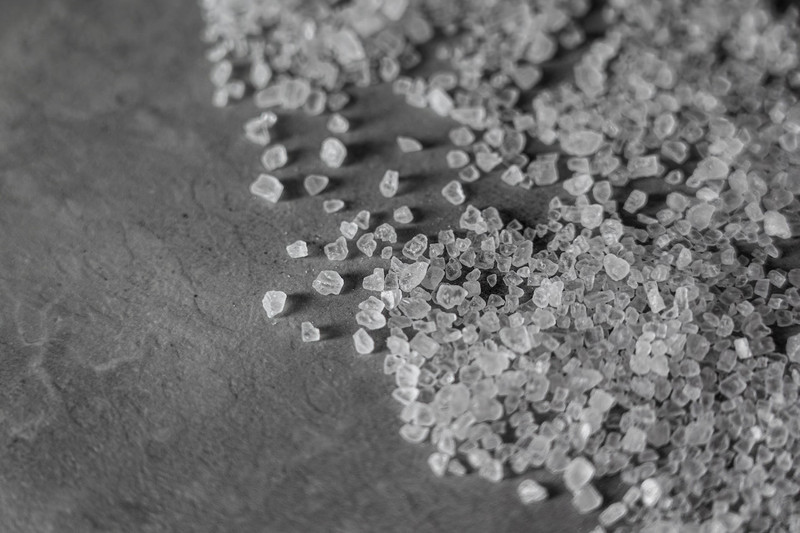Reviewed By: Kacie La
If you’ve got a bath at home, it only takes a few simple products to turn an evening scrub into a luxurious spa experience. And the best part is, many of these special touches are relatively inexpensive and easily accessible — like bath salts!
N-Essentials’ range of products includes Epsom salts and pink Himalayan salt, both of which can be used to create beautiful hand-crafted bath salts. Continue reading to learn about the similarities and differences between these two and what they should be used for.
What Are Bath Salts?
Bath salts are minerals added to the bath that can help elevate the entire experience. Any type of salt can be used for this purpose, but there are some that are more suitable than others — Epsom and Himalayan salt, for example, rather than standard table salt.
While you can use the salt in isolation, fragrance and dried flowers can also be added so you can cultivate every aspect of the experience.
Uses of Bath Salts
Never used bath salts before? Here are a few ideas for how you can incorporate this fantastic ingredient into your daily routine.
Use in a Bath After Exercise
If you spend a fair bit of time exercising — whether you hit the gym or play football a few times a week — you no doubt wake up most days of the week feeling pretty sore.
One strategy you can try to help mitigate this is to take a bath with bath salts sprinkled through. Simply giving your body the chance to stop and sit in warm water is an excellent idea.
Create Body or Foot Scrubs
Our skin plays an important role in providing us with a barrier against external threats. It goes through a lot every day, but we rarely take the time to stop and say thank you!A simple body or foot scrub can revitalise the appearance of skin by exfoliating dead cells, and cleaning dirt and dust. Your skin will look and feel completely brand new.
Keep in mind that different types of salt will have different applications. A fine granular salt will be better suited to a foot scrub than a coarse salt — but more on that later.
Alleviate Itchy Skin
Itchy skin can have a range of causes, from insect bites to an allergic reaction. While bath salts won’t fix the root cause of the issue, they may help alleviate some of the skin symptoms.
Next time you’re suffering from dry and itchy skin, try taking a soak in an Epsom salt bath and see what difference it makes! Keep in mind that it’s always a good idea to check with your doctor before applying any products to irritated skin.
Do a Foot Soak
If you work in a job that requires you to be on your feet all day, a simple foot soak in the evening could be exactly what you need to help feel refreshed and revitalised.
A foot soak is also an excellent way of exfoliating the skin and reducing odour.
Different Types of Bath Salts & Their Benefits
As mentioned, there are different types of bath salts that serve different purposes.
Understanding the similarities and differences between each will help you get the most out of the ingredients. Keep in mind, too, that Epsom and Himalayan bath salts are intended for external use only and should not be ingested.
Epsom Salts
Named after the English town of Epsom where it was first discovered, Epsom salt may look similar to regular table salt, but you certainly wouldn’t want to sprinkle this ingredient on top of your dinner — it has a distinctly bitter and unpalatable taste.
Epsom salt is a naturally occurring substance that can dissolve completely in water, making it a great addition to baths and blends designed to help reduce the appearance of redness associated with itchy skin.
Epsom bath salts blend well with the following ingredients to make everything from foot bath solutions to fabric conditioner:
- Avocado oil
- Cocoa butter
- Coconut oil
- Grapeseed oil
- Lavender oil
- Sunflower oil
- Dried rose petals
- Dried lavender
- Dried calendula
Himalayan Bath Salts
Himalayan bath salts are another popular ingredient that can be used to create scrubs, soaps, bath bombs, and many other products.
N-Essentials product range includes three different types of Himalayan bath salts: fine, coarse, and mixed. Understanding the differences between each will help you choose the right ingredient for your intended use.
For example, fine Himalayan salt is better suited in a foot scrub, while coarse granules go perfectly in a salt bath solution.
Generally speaking, Himalayan bath salts pair perfectly with the following ingredients:
- Aloe vera juice
- Avocado oil
- Bergamot essential oil
- Coconut oil
- Jojoba oil
- Lavender essential oil
- Moroccan argan oil
- Shea butter
- Sunflower seed oil
- Vegetable Glycerine
- Vitamin E oil
Shop for Bath Salts at N-Essentials
If you’re searching for bath salts online, look no further. The team at N-Essentials are passionate about ensuring our customers have access to the best raw ingredients available, including Epsom and Himalayan salts. Whether you’re planning on making a body scrub or exfoliating shampoo, we have the ingredients you need.
Check out the complete collection of products on our website today, and contact our team if you have any questions.












